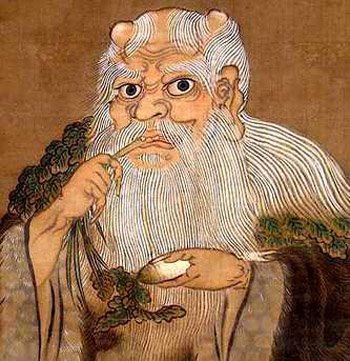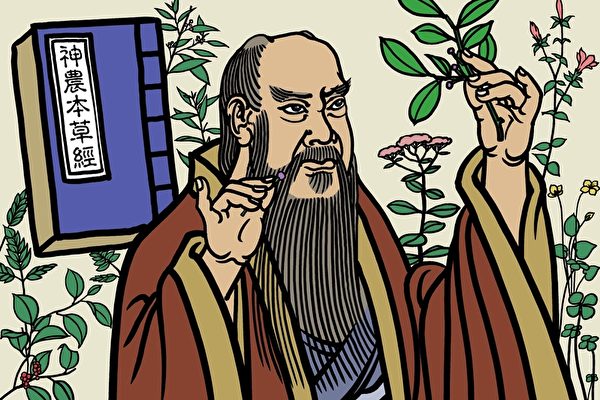Lu Yu wrote in his monumental book The Classic of Tea: “Tea as a beverage, originated from Shennong.” So who’s Shennong? Why is he also known as the ‘divine farmer’? And how did he discover tea? In this article you'll find the answers to these questions.
'Shennong' Definition: Meaning in Chinese
Shennong (神农) literally means “Divine Farmer” or “God of Agriculture” in Chinese. However, in fact he isn't a farmer, but a hobbyist who simply dried a lot of herbs to identify their benefits. Thus, we believe that the term 'herbalist' would fit him more.
Yan Emperor
He is also called Yandi (Yan Emperor), who is considered one of the three deified emperors of prehistoric China. According to the legend, it’s Shennong who taught the ancient Chinese not only the practice of agriculture, but also the use of natural herbs for medicinal use.
The Birth of Shennong by Nü Teng
As the God of Chinese herbal medicine, Shennong was fascinated by the healing properties of herbs and fungi even as a child. Legend has it that Shennong was conceived when his mother, Nü Teng, swallowed the vapour of a celestial dragon. Nine days after the conception, he came out of his mother’s womb with a transparent belly and internal organs. Three days later, he was able to speak. On the fifth day after birth, he could walk. On the seventh day, he formed a full set of teeth. Quickly, he turned out a big strong man and became the leader of his tribe.
Shennong Herbs: Research & Adventure

Life was tough 5,000 years ago, people suffered from hunger and numerous diseases. Shennong felt for them deeply. As he was determined to find safe food and remedies for his people, he started to hike among the mountains and tasted hundreds of herbs to test their medical value. Thanks to his see-through belly and organs, Shennong was able to tell the way herbs worked in his body. He tested different parts of the plants to find out the best use of the roots, stems, leaves etc. Then wrote down his observations.
One day, he encountered seventy-two poisonous herbs; it was too much even for him. He felt so weak, stumbled, and grabbed some leaves as he fell. Lying on the ground, he thought that he would taste the leaves in his hand, and then he could die without regret. The leaves swam around in Shennong’s body as soon as he put them in his mouth. They swiftly checked the infected areas and performed wonders. Shennong was saved by their healing power, he pleasantly surprised and decided to name this plant “cha” (Chinese: 查) meaning “examine” or “check”. Since then, Shennong often used cha as an antidote. Cha was known by people because of him, but with a different character “茶”, which means tea in Chinese.
Note: there are other versions of this legend available, but we believe that the above legend is the com
Heritage: Shennong Bencao Jing

The valuable work of Shennong was remembered and handed down to generations. It eventually became the oldest book of Chinese traditional medicine known as 'Shennong Ben Cao Jing' or 'The Classic of Herbal Medicine'. There are 365 entries of medicaments and descriptions that divided to 3 volumes.
Volume one consists of a collection of “upper herbs”. it includes 120 harmless plants with "stimulating properties” such as ginseng, rehmannia and liquorice.
Volume two has 120 herbs that are therapeutic with poisonous or possibly poisonous properties of varying degrees. For instance, angelica, longan and ephedra.
Volume three consists of 125 entries which have strong or violent action on physiological functions and are often toxic. They are called "low herbs", such as rhubarb and aconite. They are usually used to assist other drugs.
Note: Shennong is also often known as 'Shennung'